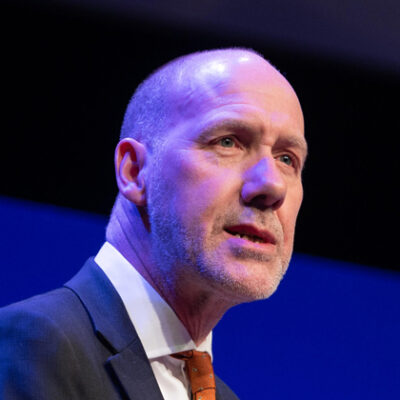Academy trusts face having to pay out tens of thousands more in GCSE and A-level exam fees this year after boards hiked prices by up to 17 per cent.
Both Edexcel, run by Pearson, and OCR have raised fees for all 2023 exams by a flat 6 per cent.
England’s largest exam board AQA has hiked prices by between five and 17 per cent, although it is still has the lowest prices overall.
Exam boards, which will earn several million pounds more from schools after the rises, said they needed to cover rising costs.
But leaders said the increases were “inappropriate” as schools battle soaring energy and staffing costs.
‘This isn’t going to wash’
Jonny Uttley, CEO of multi-academy trust The Education Alliance, told Schools Week the inflation argument “isn’t going to wash” with school leaders.
“Although I fully understand exam boards have rising costs, passing these directly through to schools is quite inappropriate in the current climate.”
Frustration over fees grew last year after Schools Week revealed boards were raising prices despite exams being cancelled and teachers instead deciding grades.

AQA has hiked prices for A-level art by 17 per cent – from £89.65 to £105.10. Other subjects have seen rises of between 5 and 12 per cent.
The non-for-profit organisation said increases for the majority of its qualifications were “well-below inflation” – currently at 9.9 per cent.
Rises above inflation are to “better reflect the market and true costs of delivering these qualifications”.
Fees for A-level biology, chemistry and physics have risen by 10 per cent while GCSE geography and art have risen by 12 per cent. A maths GCSE now costs £41.20, up from £39.15.
The board’s fees remain the cheapest and last year were only raised 2 per cent after a backlash when exams were cancelled.
AQA could boost income by £5m
It means an average-size secondary, with 200 year 11s taking nine of the most popular GCSEs with AQA could pay an extra £4,840. This would cost around £30,000 for an average multi-academy trust with seven secondary schools.
If entry rates for these subjects remain the same as this summer, it means AQA could gain an extra £4.9 million. But the board said this would only cover costs.
Tracey Newman, AQA’s director of customer and sales, said her organisation understood “that no-one wants to see prices increase, but like many organisations we’re experiencing a rise in the cost of providing our services”.
“As an independent charity, we don’t charge more than we need to for our qualifications and services, and we’ve kept entry fee increases well below the rate of inflation for the majority of our qualifications.”
AQA aims to keep prices “fair and competitive” and fees are reinvested into developing qualifications, maintain a wide choice of subjects and help support and train teachers.
Geoff Barton, general secretary of school leaders’ union ASCL, said the rises constituted “another cost pressure on schools and colleges which simply cannot afford such increases without additional government funding being made”.

“At a time when schools and colleges are under growing financial pressure, we would expect exam boards to restrain costs as much as possible. Certainly an increase that is above the pay award for most teachers is difficult to swallow.”
Edexcel has hiked fees by six per cent this year. The cost of a maths GCSE is now £46.80 compared to £44 last year.
Across nine subjects for 200 year 11s, this works out an extra £5,060 – or £35,420 for a trust with seven secondary schools.
Based on last year’s entry rates, that is an extra £2.1 million for Pearson.
‘We recognise budgets are stretched’
A spokesperson said they recognised school budgets “are stretched” and “we will always aim to keep fee increases to a minimum while providing as much value for money as possible”.
“Qualification fees enable us to provide everything that is needed through the course – from preparing the course content and assessments, teaching and learning support for schools, through to marking and delivering results.”
Likewise OCR, owned by Cambridge University Press & Assessment, is hiking fees by 6 per cent. A maths GCSE now costs £47, up from £44.25.
With similar entry rates to last year across nine GCSE subjects, this would see OCR gain an extra £383,000.
An OCR spokesperson said they knew schools were facing “several financial challenges” and “aim to keep any fee increases as low as possible”.
They use fee funds to provide subject resources, training, access to subject experts and new technology. It is not-for-profit.
All three boards have hiked fees by around 13 per cent since 2020 – although some subjects for AQA have risen by between 15 and 20 per cent.
However, each board part-refunded schools when exams were cancelled.
OCR gave the biggest rebate of 42 per cent in 2021, while Pearson gave 33 per cent. AQA initially gave 26 per cent before refunding an extra £3.5 million this year.
















Your thoughts